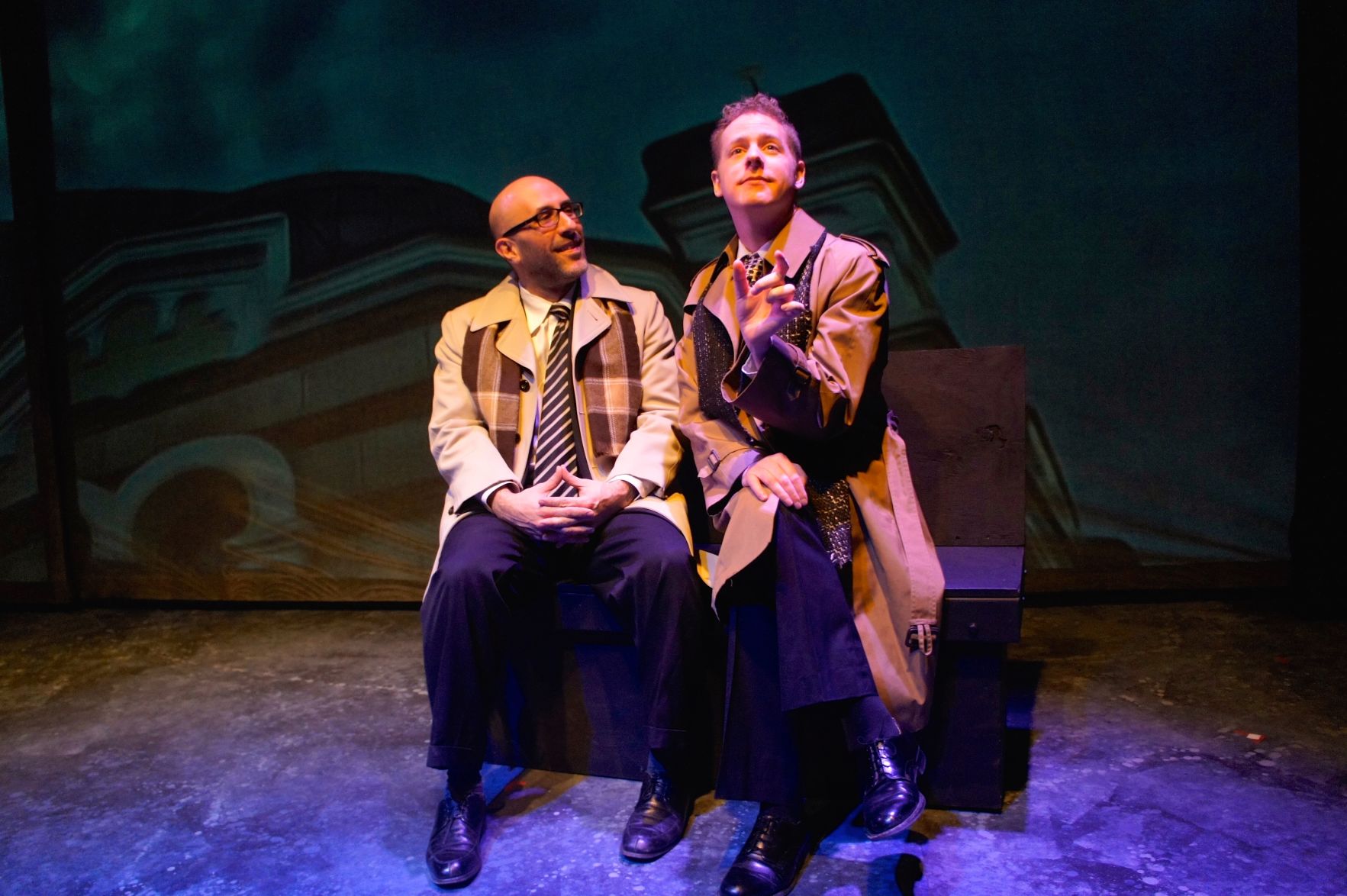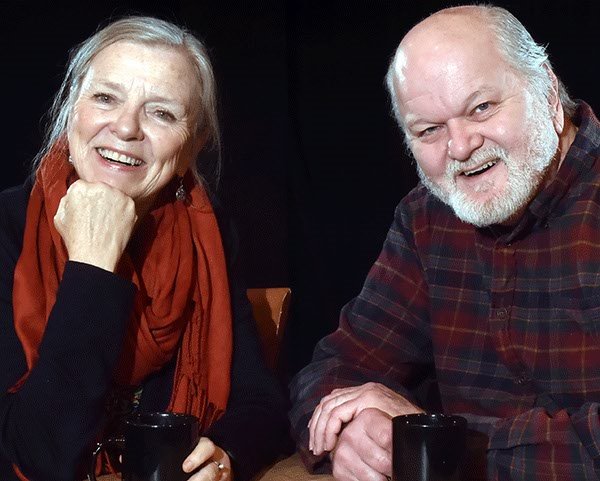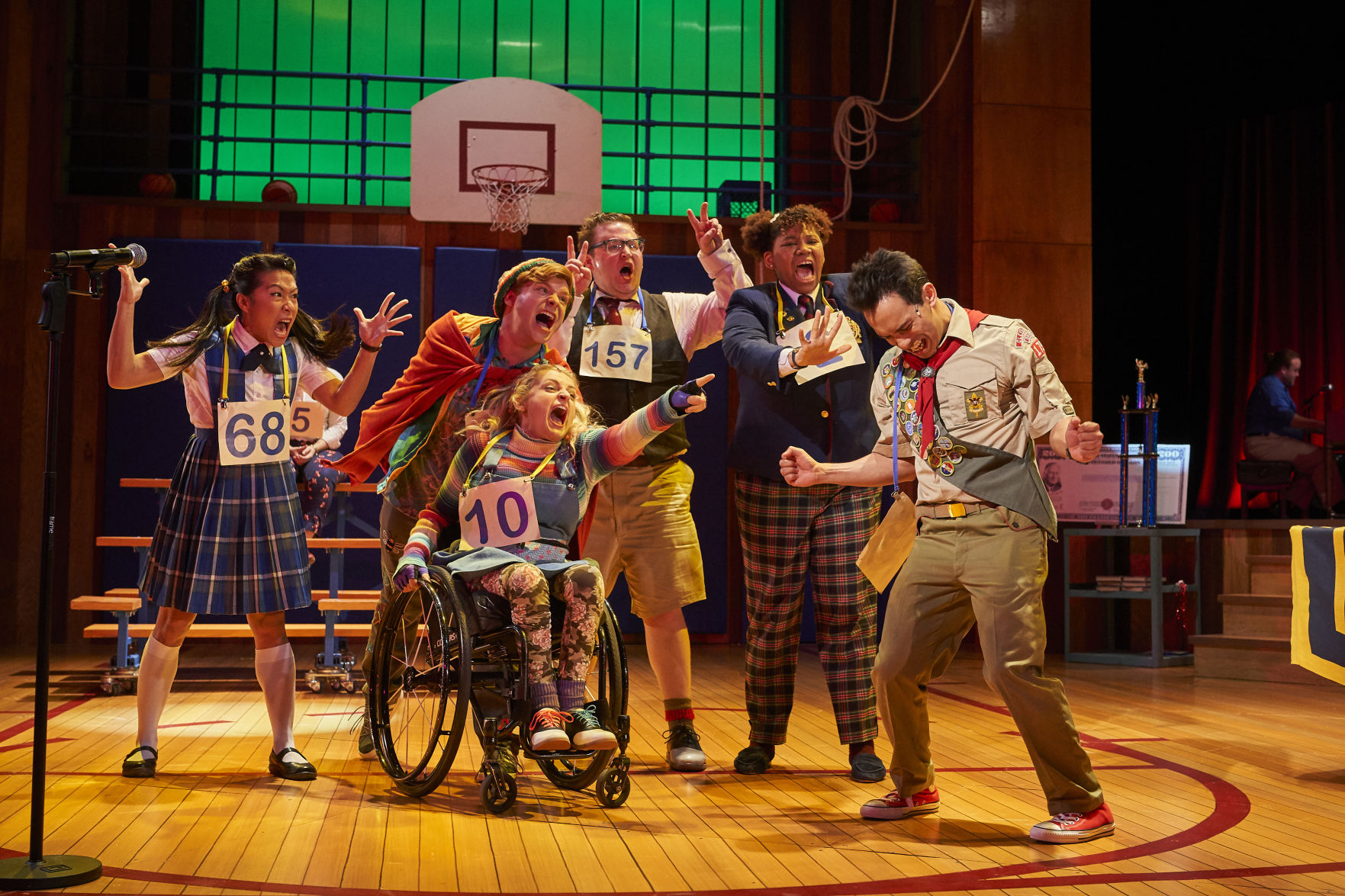‘The Humans’ on tour, a moving reminder of life’s fragility
By Bob Abelman
There’s a wonderful cartoon by The New Yorker’s Bob Mankoff that depicts a corporate executive reporting to his board.
“And so,” he says, “while the end-of-the-world scenario will be rife with unimaginable horrors, we believe that the pre-end period will be filled with unprecedented opportunities for profit.”
Stephen Karam’s “The Humans,” currently on tour with a three-week stopover at Playhouse Square, also calls attention to the admirable if highly irrational human tendency to be enterprising in the face of imminent demise.
And like Mankoff’s hand-drawn illustration, the play – unfolding in a mere one-act on a single stationary set – is simply rendered to underplay its hefty message about life’s fragility and impermanence while simultaneously underscoring it.
At first glance, “The Humans” seems to be just another American play – like Tracy Lett’s “August: Osage County,” Alan Ayckbourn’s “Absurd Person Singular,” Richard Nelson’s “The Apple Family Plays” and so many others – that takes place over a meal at a family gathering and which sets its limited sights on domestic dynamics.
Here, three generations of middle class, Irish-American Blakes – loving father Erik (Richard Thomas), overprotective mother Dierdre (Pamela Reed), elder daughter Aimee (Therese Plaehn), younger daughter Brigid (Daisy Eagan) with benevolent boyfriend Richard (Luis Vega), and grandmother “Momo” (Lauren Klein) – have come together to share Thanksgiving dinner. Weary from travel and over too many drinks, old arguments about religion and marriage erupt, sensitive emotional buttons grounded in shared family history get pushed, generational gaps are exposed, and a few secrets are revealed. The normal stuff of family gatherings.
But it is rare indeed for a non-musical to find a place in the Key Bank Broadway series, suggesting that “The Humans” is more than it appears.
It’s four 2016 Tony Awards, including one for best play, and the fact that it would have won the Pulitzer Prize for drama were it not for the Broadway premiere of “Hamilton,” are proof that it is.
Not long into the production, it becomes clear that the play is tackling bigger issues than family dysfunction and that it does so in a most extraordinary way.
Tony voters have likened “The Humans” to the works of Annie Baker, in that both employ startlingly realistic dialogue that is immediately appealing and absorbing, as if we have just walked into an actual conversation rather than a theatrical presentation. But while Baker embraces silences that give way to contemplation and reflection, Karam’s continuous supply of overlapping conversation and director Joe Mantello’s setting his actors in perpetual motion never gives the audience the opportunity to disengage or dissect.
The play’s undercurrent of anxiety has been compared to the works of Anton Chekhov, except that Karam uses an abundance of impeccably placed comedy to both set up and brilliantly distract us from the dramatic tension. We never really see it coming until we are up to our eyes in it.
The family gathering takes place in Brigid and Richard’s spacious but windowless two-floor basement apartment in New York City’s Chinatown. We soon learn through casual conversation that it is a short distance from 9/11’s Ground Zero, is located in the area flooded by Hurricane Sandy, and a family member died in a factory fire in 1911 just a few blocks away. The place also emits mysterious thumps and experiences inexplicable blackouts, courtesy of designers Fitz Patton and Justin Townsend.
The apartment is set slightly askew on stage by scenic designer David Zin and appears to be ripped from its moorings – a true breaking of the fourth wall – leaving a border of exposed brick and concrete block. Quite the inhospitable, precarious and threatening environment for a simple family drama.
As the play progresses, we discover that its seemingly unremarkable characters – played most convincingly by a talented corps of seasoned performers – are living unimaginable, debilitating and demoralizing horrors in their own personal end-of-the-world scenarios. As such, they are immediately recognizable and astoundingly relatable. And, as do the humans depicted in Bob Mankoff’s The New Yorker cartoon, they persevere and carry on. As do we all.
If still unconvinced upon leaving the theater that “The Humans” is not just another American family drama, take note of the fact that the father, Erik, enters the play the way he leaves it: alone and in the dark. This is not a curtain call moment for recognizable actor Richard Thomas, who originated the role of John-Boy in TV’s “The Waltons” – which IS just another American family drama. The playwright is reminding us that we all enter and leave this world alone and in the dark.
Touring “The Humans” at Playhouse Square
WHERE: Connor Palace Theatre, 1511 Euclid Ave., Cleveland
WHEN: Through April 29
TICKETS & INFO: $10-$80, call 216-241-6000 or visit playhousesquare.com
Bob Abelman covers professional theater and cultural arts for the Cleveland Jewish News. Follow Bob at Facebook.com/BobAbelman3. 2017 AP Ohio Media Editors best columnist.
Originally published in the Cleveland Jewish News on April 13, 2018.
Lead image: Richard Thomas (from left), Therese Plaehn, Pamela Reed, Lauren Klein, Daisy Eagan and Luis Vega. Photo / Julieta Cervantes











